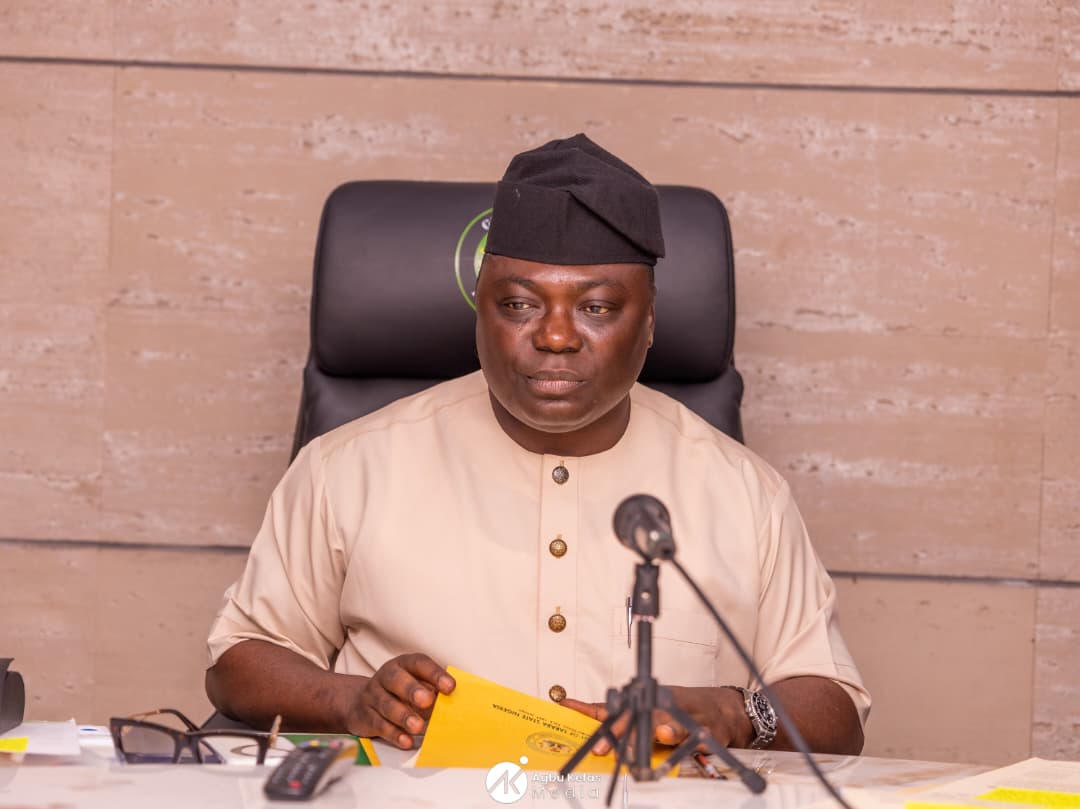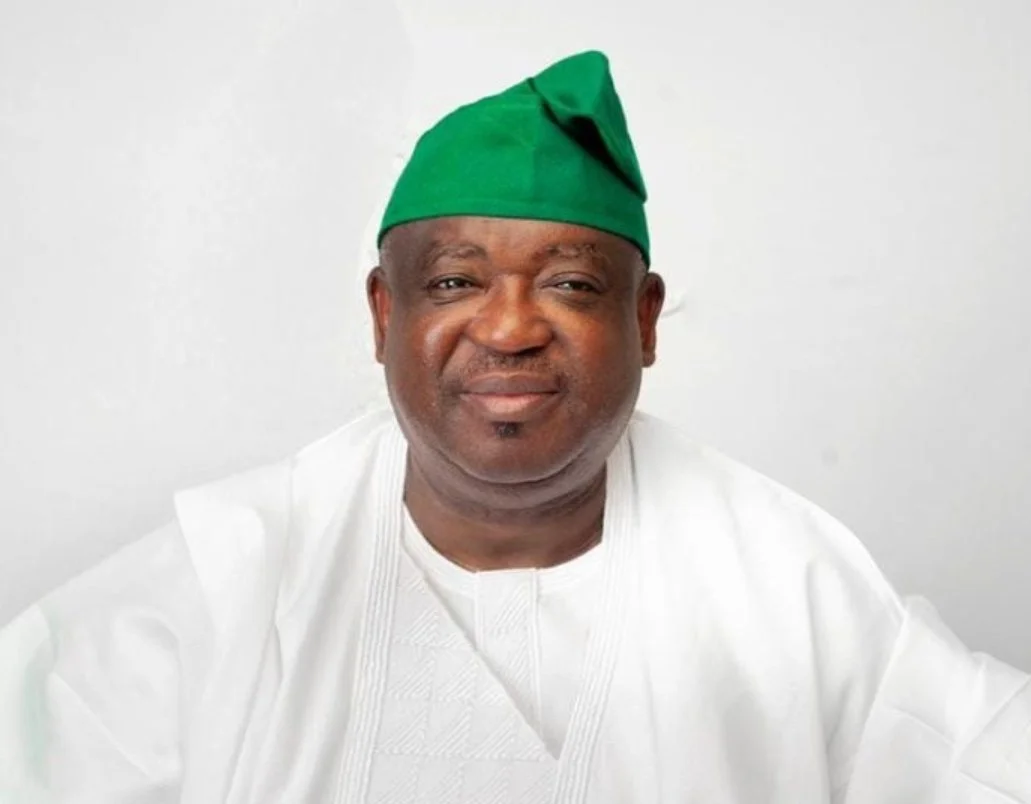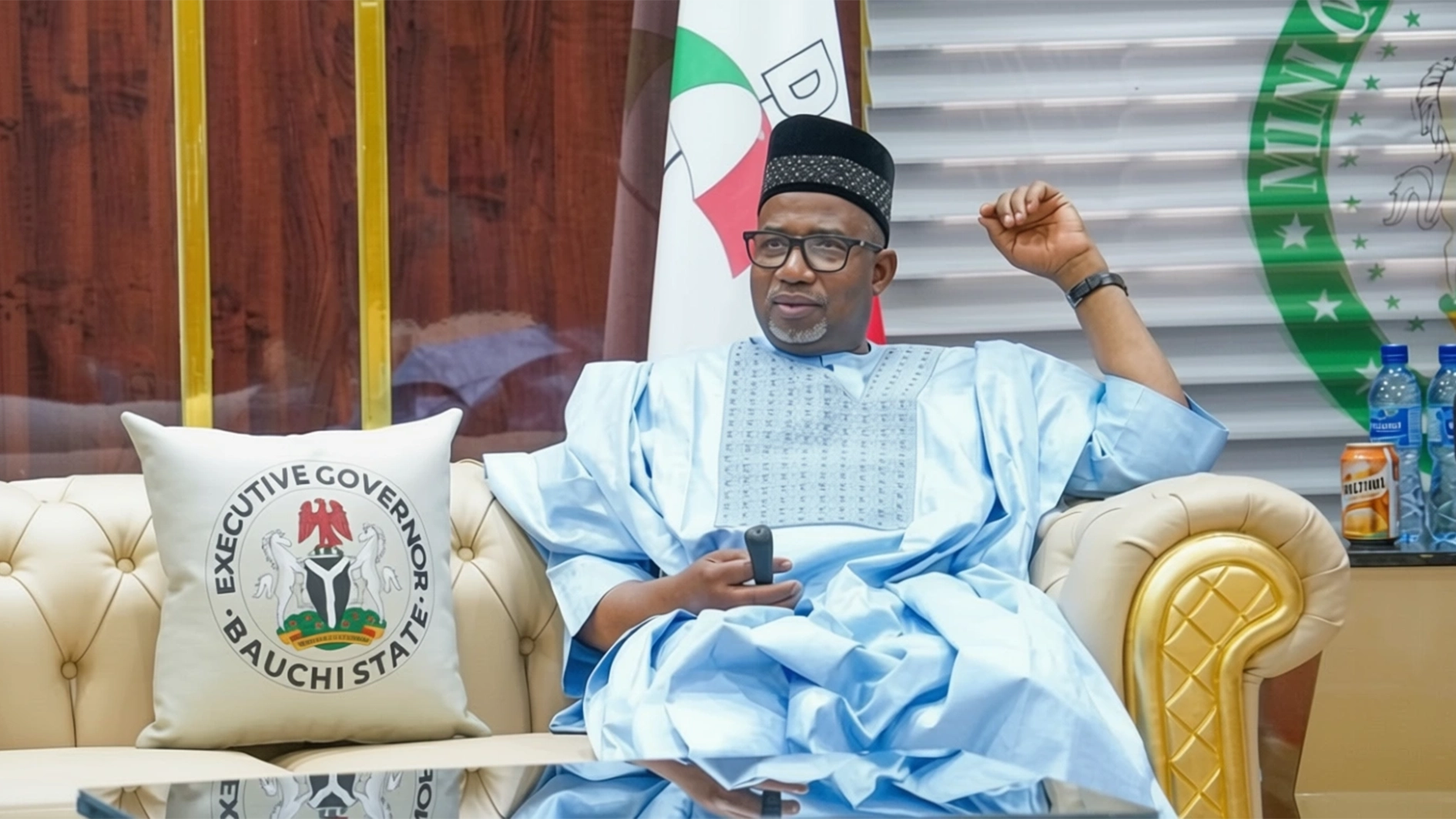Unless there is a clear and unambiguous strategy to address the issues of citizens’ welfare and development, the ongoing coalition plans to upstage the current administration in the 2027 election tend to suggest a gang-up to grab political power for its own sake, LEO SOBECHI writes.
At various points in Nigeria’s march towards democratic approximation, the notion of a two-nation-in-one has always played out. That notion was evident during the meeting of Southern Governors in Lagos House, Marina, in 2021.
At the culmination of that meeting, the state chief executives not only called for the rotation of the presidential seat from the North to the South but also banned the movement of cattle on foot from the North to the South. They stressed that while the ban was necessary to stem the growing tide of farmer-herder clashes and insecurity in the South, the idea of power rotation was intended to enhance national stability and economic progress.
Former Ondo State governor, Rotimi Akeredolu, who was chosen as the leader of the Southern Governors, explained that the meeting was to ensure collaborative schemes among the governors of the region in the areas of economic management and security.
Perhaps taking a cue from their Southern counterparts, the governors of the 19 Northern states met in Kaduna, where they took up issues of healthcare, out-of-school children, as well as tackling the almajirai menace.
Then, in the current dispensation of President Bola Ahmed Tinubu’s presidency, the revised tax policy also tended to pit the South against the North before clever thinking and political troubleshooting harmonised the disparate tendencies.
Both at the National Assembly and the Federal Executive Council levels, politicians continue to pretend about national unity and cohesion, even when discernible lines in socio-economic indices betray the silent notion of two-nation-in-one.
But in no other significant way has this seeming duality become more manifest in recent times than in the purported effort at coalescing latent political forces into a practical coalition to disrupt the run of play in 2027.
The Fourth Republic’s first Vice President, Alhaji Atiku Abubakar, is on record as the first politician to suggest a coalition of opposition politicians to stand up to and dislodge the incumbent political party and President, All Progressives Congress (APC) and Asiwaju Bola Tinubu, in the 2027 general election cycle.
While Atiku made this suggestion during his world press conference at the conclusion of the election petitions against Tinubu’s victory in the 2023 poll, the proposal did not receive much traction as many believed the former Vice President was merely venting his frustration over electoral defeat.
Moreover, Atiku’s idea was undermined by the divided opinion in the polity over the rationale for his candidacy, particularly immediately after a fellow Northerner, Muhammadu Buhari, had just completed an eight-year tenure at the apex of Nigeria’s political structure. Also, some felt that his former running mate in the 2019 contest, Mr Peter Obi, had performed better than what the Independent National Electoral Commission (INEC) credited him with.
However, the concept of a nationwide coalition gained traction when the immediate past Governor of Kaduna State, Nasir Ahmad el-Rufai, criticised the performance of the Tinubu-led APC administration.
Apart from being a prime mover in the political machinations that prevented former President Buhari from foisting another Northern politician as his successor, el-Rufai, after an ontological recap of the events surrounding the 2023 APC nomination process and presidential election, argued that the North chose to support Tinubu despite his obvious baggage. He emphasised that since the Northern governors decided to allow the South a shot at the presidency, they supported their imperfect choice of candidate in the name of justice and equity.
The ‘Accidental Public Servant’ therefore declared that in 2027, the South should raise a credible candidate to complete its remaining four years as provided by the zoning principle, adding that the North would mobilise support to restrict Tinubu to a single term.
Speaking during an Arise Television programme, Primetime, the former Kaduna State governor said: “The Southerners were given an opportunity in 2023, but they chose Tinubu. In 2027, if he has not done well for you and the country, let’s vote him out.”
It became apparent that el-Rufai’s message of justice and equity, combined with his call for accountability as a criterion for leadership evaluation, provided a strategic road map for the coalition, distinct from Atiku’s approach, which some perceived as an ambition-driven power grab cloaked in Northern arithmetic.
Recall that in the build-up to the 2023 general election, the former Vice President had asserted that what the average Northerner needs is someone from the North, not a Yoruba or Igbo candidate.
Responding to a question from Dr Hakeem Baba-Ahmed during the interactive Policy Dialogue organised by the Northern Elders Forum (NEF) in Kaduna State, Atiku stated that after touring the entire country, he had built bridges across Nigeria.
He therefore declared: “What the average Northerner needs is somebody who is from the North and who also understands the other parts of Nigeria, and who has been able to build bridges across the rest of the country.
“This is what the Northerner needs. He doesn’t need a Yoruba candidate or an Igbo candidate. This is what the Northerner needs. I stand before you as a Pan-Nigerian of Northern origin.”
Although none of the protagonists of the current coalition plan has referenced it directly, it is possible that Atiku’s open pandering to Northern preeminence, contrary to the zoning principle, contributed to public apathy towards the political collaboration being floated to check the creeping authoritarianism attributed to Tinubu and the APC.
Not that alone, it is also clear that the North is neither inclined, as a bloc, to either el-Rufai’s stance on four more years to the South nor Atiku’s arithmetic argument that presidential power should return to the North to equalise the number of years that the post had been held by Presidents of Southern origin.
For instance, those opposed to el-Rufai argue that his position on retaining power in the South is a calculated move to earn political IOUs, which he might later cash in on during a possible 2031 presidential bid.
Conversely, Atiku faces criticism from Northerners who believe he should step aside for younger candidates, having already contested in both the 2019 and 2023 elections. A chieftain of the New Nigeria Peoples Party (NNPP), Buba Galadima, said el-Rufai lacks the competence to speak for the North or determine its position in 2027.
Yet, those advocating for the presidency to return to the North in 2027 appear to have the backing of centrists—people like Hakeem Baba-Ahmed—who, under the guise of Tinubu’s perceived failures, are pushing for another leadership transition.
Shortly after resigning from his role as Special Adviser on Political Affairs to the President, Baba-Ahmed published an open letter urging Tinubu not to seek re-election. It was seen as his subtle reentry into public political commentary. He wrote: “Step aside, not for your opponents, but for a new generation of Nigerians who can carry the nation forward with fresh energy and ideas.
“Our generation has done its time. It would be a masterstroke if you and your party yielded the field to new voices and new leadership. That way, you could catalyse a peaceful, historic transformation and inspire a new political culture rooted in merit, unity, and progress.”
Also appearing on Arise Primetime in mid-April, Dr Baba-Ahmed’s younger brother, Yusuf Datti, who was Mr Peter Obi’s running mate in 2023, told the TV anchor: “I expect Tinubu to throw in the towel. If he is that smart a politician, I expect him to be. You know that I always tell the truth. For someone to have organised in 2007, culminating in his electoral heist in 2023, that person must be super smart, and I am not praising him at all.”
But Co-convener of the League of Northern Democrats, Dr Umar Ardo, while explaining the rationale for the coalition, said the idea was not about who flies the presidential flag in 2027, but rather about restoring accountable leadership and functional democracy.
Ardo dismissed Dr. Hakeem Baba-Ahmed’s open letter, querying why the former presidential aide did not raise a formal memo while still in office to suggest that Tinubu should decline a second-term bid.
A former Director in the Kano State Government House, Mallam Adamu Muhammad Nababa, also highlighted the dangers of a one-term presidency, noting that Nigeria often finds itself at critical junctures in its quest for political stability and economic prosperity.
Nababa argued that since it is obvious Tinubu will run as the APC standard bearer in 2027, the presidential contenders should be fielded from the South to ensure democratic rivalry.
As the issue of coalition and the question of the flag bearer’s regional origin continue to keep the alliance in a state of spasmodic suspense, many Nigerians are asking: What does the North really want? Others contend that the coalition’s promoters are more interested in grabbing power than tackling issues of governance and democratic maturity.
Addressing a recent meeting of Northern Governors in Kaduna, the state’s chief executive, Senator Uba Sani, lamented that political leaders who held office in the past 15 years were to blame for the region’s backwardness.
“We, including myself, should be held accountable for what is happening in northern Nigeria in terms of poverty, unemployment, lack of education, lack of security, banditry, kidnapping and insurgency,” he stated.
Similarly, during the launch of A Journey in Service, a book about former military President Ibrahim Babangida on February 20, it was observed that the North has caused more leadership disruptions than any other region.
Against this background, analysts believe the coalition partners must shift their focus from mere regime change (juye miliki) to concrete themes like governance, equity, electoral credibility, and sustainable development.
Opposition politicians, if they truly aim to present a credible alternative to the current leadership, must reassess their agenda and streamline their strategies, so that politics becomes a tool for delivering good governance rather than merely winning elections.
Dr Hakeem Baba-Ahmed appeared to endorse such a policy realignment during his appearance on a Channels Television programme last Tuesday. “With so much waste, abuse of resources, and corruption, it is clear the Tinubu administration has failed expectations that it was going to radically improve the quality of governance,” he noted.
If the quality of life for ordinary Nigerians, rather than World Bank statistics, is to be the yardstick for assessing governance, then the coalition leaders must clearly articulate how they intend to reverse the current trend. That way, a truly national conversation for change will become both inclusive and productive.






